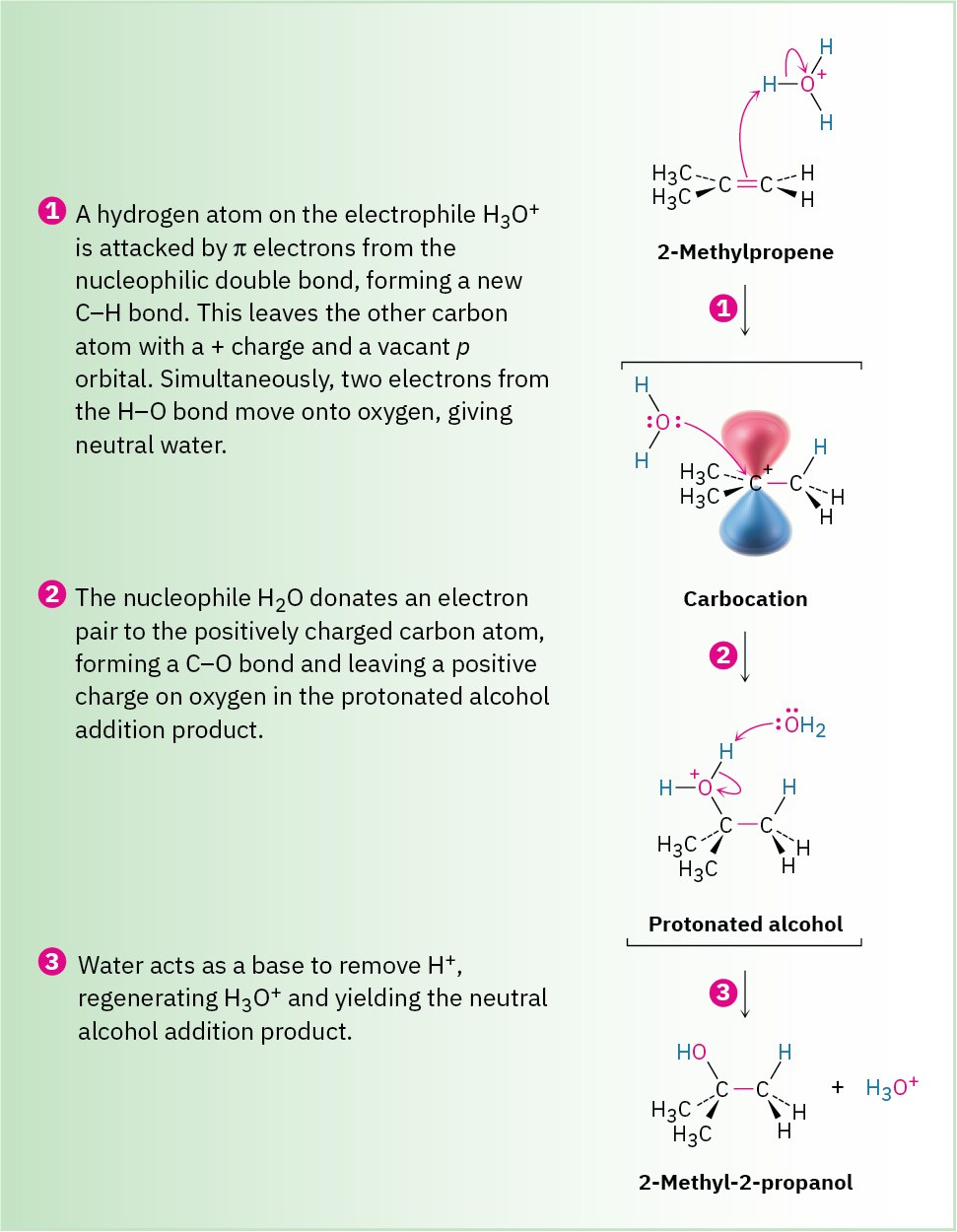5.3 Hydration of Alkenes: Addition of H2O
Water adds to alkenes to yield alcohols, a process called hydration. The reaction takes place on treatment of the alkene with water and a strong acid catalyst, such as H2SO4, by a mechanism similar to that of HX addition. Thus, as shown in Figure 5.6, protonation of an alkene double bond yields a carbocation intermediate, which reacts with water to yield a protonated alcohol product, ROH2+. Loss of H+ from this protonated alcohol gives the neutral alcohol and regenerates the acid catalyst.

Figure 5.6 MECHANISM: Mechanism of the acid-catalyzed hydration of an alkene to yield an alcohol. Protonation of the alkene gives a carbocation intermediate, which reacts with water. The initial product is then deprotonated.
Most ethanol throughout the world is now made by fermentation of biological precursors, such as corn and sugar, but acid-catalyzed alkene hydration is particularly suited to large- scale industrial procedures, and approximately 90,000 tons of ethanol is manufactured each year in the United States by hydration of ethylene. The reaction is of little value in the laboratory, however, because it requires high temperatures—250 °C in the case of ethylene—and strongly acidic conditions.
 Acid-catalyzed hydration of double bonds is also uncommon in biological pathways. Instead, biological hydrations usually require that the double bond be adjacent to a carbonyl group for reaction to proceed. Fumarate, for instance, is hydrated to give malate as one step in the citric acid cycle of food metabolism. Note that the requirement for an adjacent carbonyl group in the addition of water is the same as in the elimination of water. We’ll see the reason for this requirement later, but will note for now that the reaction is not an electrophilic addition but instead occurs through a mechanism that involves formation of an anion intermediate followed by protonation by an acid HA.
Acid-catalyzed hydration of double bonds is also uncommon in biological pathways. Instead, biological hydrations usually require that the double bond be adjacent to a carbonyl group for reaction to proceed. Fumarate, for instance, is hydrated to give malate as one step in the citric acid cycle of food metabolism. Note that the requirement for an adjacent carbonyl group in the addition of water is the same as in the elimination of water. We’ll see the reason for this requirement later, but will note for now that the reaction is not an electrophilic addition but instead occurs through a mechanism that involves formation of an anion intermediate followed by protonation by an acid HA.


